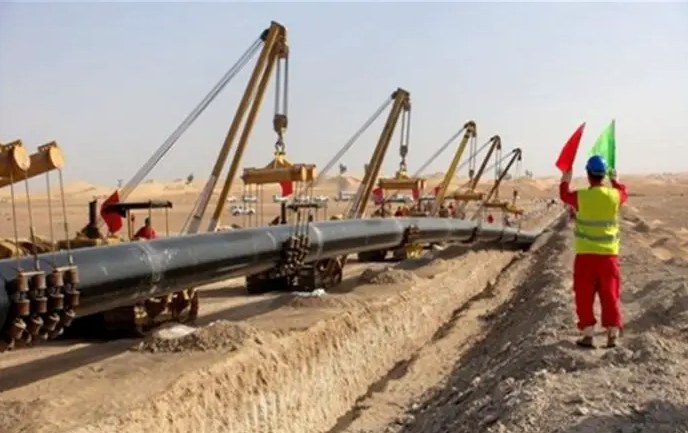
Developed by the Nigerian National Petroleum Corporation (NNPC), the Ajaokuta-Kaduna-Kano (AKK) gas pipeline project entails the construction of a 614km-long natural gas pipeline from the Ajaokuta terminal gas station (TGS) in the Kogi state in the southern region of Nigeria, through the Federal Capital Territory (FCT), Niger, and Kaduna, to terminate at a gas station in Kano.
The project, the cost of which is estimated at US$ 2.8bn, is being implemented in three phases, under a build and transfer (BT) public-private partnership (PPP) model, which involves the contractor providing 100% of the financing.
The first phase covers the section between Ajaokuta and Abuja, which is approximately 200 kilometers long and is budgeted to cost US$ 855M.
The second phase is from Abuja Gas Terminal to Kaduna Gas Terminal, a distance of 193 kilometers and its budget is US$ 835M, while the third and final phase is from Kaduna to Kano, a distance of approximately 221 kilometers, and is estimated to cost US$ 1.2bn.
The natural gas pipeline project requires the laying of approximately 51,200 steel line 40in-diameter pipes featuring a total combined weight of 240,768t. The project will also utilize 24in-diameter steel line pipes for spur lines, as well as 40in-diameter line break valves and future tie-in valves.
Other infrastructures planned for the development include various associated valve stations, as well as intermediate and terminal facilities.
The Objective of the pipeline
The AKK gas pipeline will be supplied with up to 3,500 million cubic feet (mcf) of pipeline-quality gas a day sourced from various gas gathering projects in the southern part of Nigeria, at a minimum pressure of 1,000 lb per square inch gauge (psig) at the Ajaokuta tie-in, and deliver it to Kano also at a minimum pressure of 1,000 psig.
The long-term target of the project is to supply gas to Europe through the Trans-Saharan Gas Pipeline (TSGP) project, which forms phase one. Upon completion, the TSGP will provide a golden opportunity for the West African country to exploit its gas potential and utilize its gas resources to enable it to earn as much revenue from gas as it is earning from oil.
This will in turn enable the country to meet its nagging domestic gas utilization and eliminate its gas flaring, as well as meet global greenhouse gases/climate change policy requirements in the long run.